The day was opened with prayers: the celebration of morning lauds in primis, followed by a celebration of the Eucharist presided over by Fr. Frank Monks. In his homily, Fr. Monks emphasised two concepts connected with the Camillian charism and the role of religious who are chaplains which had been already enunciated in his paper of yesterday.
The principal motivation for activity in a chaplaincy is very simply (but deeply) rooted in the work itself of Jesus of Nazareth who proclaimed his Gospel and at the same time healed the sick and suffering: words and works were closely united. Camillians must place at the centre of their charism and vocation the work of Jesus – what he did.
In the Order and its works there are important new developments which are obligatory; but the danger also exists that the man of prayer, the mystic, will be forgotten. It is forgotten that although St. Camillus was certainly a man of action, his action was supported by an intense and deep relationship with the Lord – Jesus was at the centre of his activity. Prayer was his daily food.
So, Fr. Monks continued, using a bold parallel, in each Camillian the Good Samaritan (a man who works for the good of his suffering neighbour) should coexist with the Samaritan woman, the woman who asked Jesus questions, who wanted to know who the man was who had unexpectedly asked her for water to drink. The woman to whom Jesus revealed himself so that she could have an ‘experience’ of God. Without a deep experience of God, of a mystical life, without an intense life of the Spirit, there is the risk that we will be only operators and nothing more.
The first paper of the day was entrusted to Rosabianca Carpene who in professional terms is a health-care worker but who today belongs to the hospital chaplaincy of the city hospital of Verona and has already been the international president of the Lay Camillian Family. The title of her paper was ‘The World in which we Work: the Joys and Sadness of the World of Health are our Joys and Sadness’, with its evident reference to point 1 of Gaudium et Spes. If one could give a sub-title to this paper one would say: ‘A Heart to Heart Paper’.
Indeed, Rosabianca Carpene talked abundantly about her personal experiences. However, she related them to the Camillian charism (which she had learnt about when she was young, took on as a guideline in her profession, and then made the foundation of her spirituality as a member and a leader of the Lay Camillian Family) and to the works and spirituality of the members of the Order, in particular those who work as hospital chaplains.
She addressed many points in her paper. The first point took up the subject of the heart: ‘the domain and substance of the life of each person, of the life of the believer, of the disciple of Jesus Christ, who makes his or her own heart a fundamental human experience’ in relationships lived with his or her neighbour and in particular his or her suffering neighbour.
A second point concerned the world of health which she defined as a ‘universe, a great world’ that is experienced from different points of view, from that of a health-care worker to that of a volunteer or of a chaplain; a world that for a Minister of the Sick becomes by vocation the centre of his life. A world made up of persons and not anonymous beings. Persons who at their centres have a heart with which our hearts also communicate in line with how much we ourselves feel loved.
To be Christians means living and forming a community in which communication is not shallow but, instead, becomes a relationship that is daily, simple, every-day. This is important above all else for those who live in a context that is charged with suffering, as is the case with hospitals.
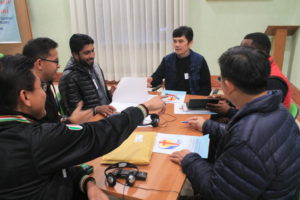 Personal relationships are thus at the centre of every involvement: ‘the joys and sadness’ of the world that draw near to us become our joys and sadness, with the suffering, at times, of feeling that we are powerless.
Personal relationships are thus at the centre of every involvement: ‘the joys and sadness’ of the world that draw near to us become our joys and sadness, with the suffering, at times, of feeling that we are powerless.
In this kind of relationship we have an important example in Pope Francis, who, even amidst crowds that jostle him, always finds a way of drawing near personally to those he sees are suffering: at that moment it seems that the person that is in front of him is a ‘unicum’.
Such is the case with God as well. As the word teaches us, God takes care of his suffering people and sends a liberator, whether a prophet or a leader.
Jesus proclaimed the Gospel with his life and his works and he, too, ‘sent’ out disciples so that they could continue his work of proclaiming. Jesus and his disciples proclaimed (the Word) and hosted (action). Their welcoming of pilgrims (us as well) was not confined to giving what was needed to survive but also included what might be adjudged superfluous – they made people see ‘beyond’; they made them see the transcendent.
Our conference, which offered an opportunity to religious who came from every part of the world and thus have social and cultural backgrounds that are very different but who are closely united in having the same charism, was a ‘unique’ opportunity for mutual listening, for an exchange of experiences, for sharing bread fraternally as well, and for praying together.
For everyone, in essential terms, there is the experience marked ‘Camillus’ of a life at the side of people, of a life given to the sick. Like the Founder, the destiny of Camillians is, literally, to be consumed in this service. This saint of Bucchianico reformed health care; he was the initiator ‘of a new school of charity’, the initiator of the difficult adventure of being at the side of the suffering; he was a teacher, a spring to which to return to drink. A man to whom the Spirit gave a charism that cannot be allowed to die.



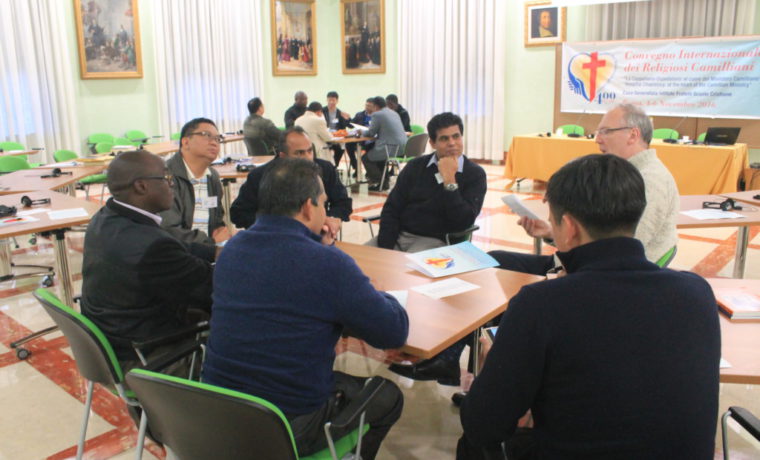
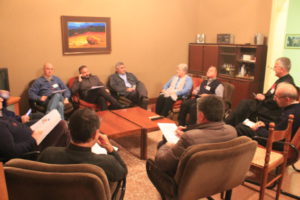
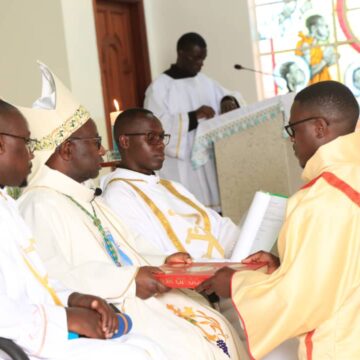

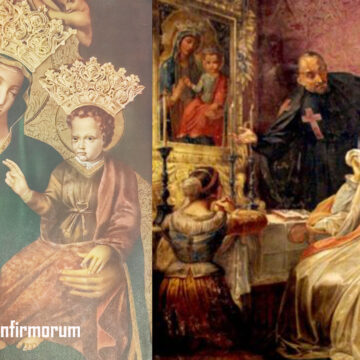
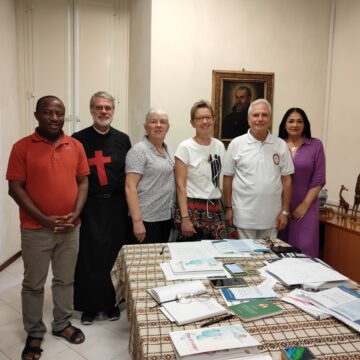

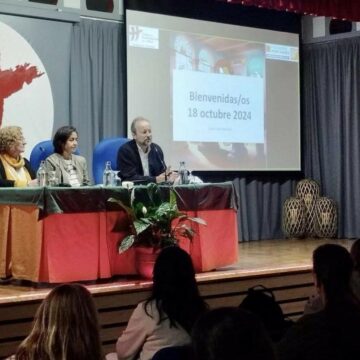
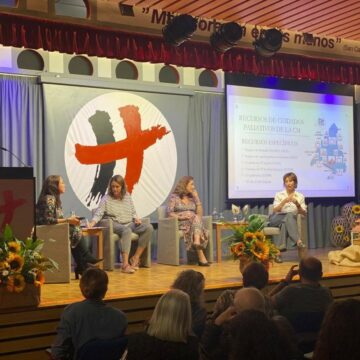
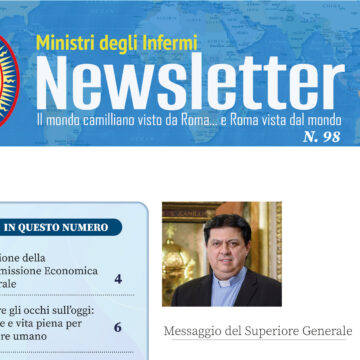
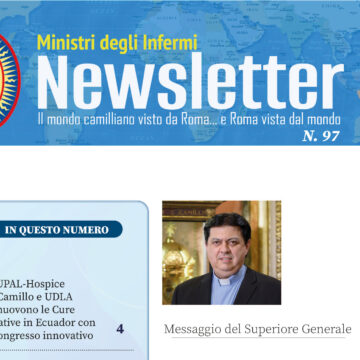
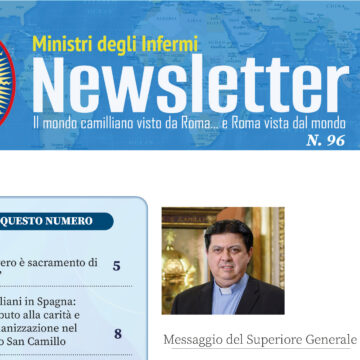
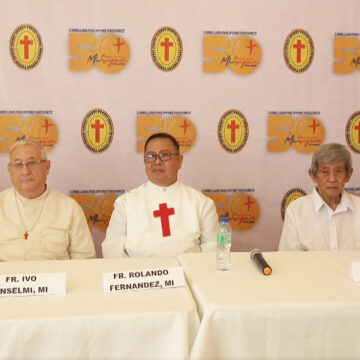
Camillians on Facebook
Camillians on Twitter
Camillians on Instagram